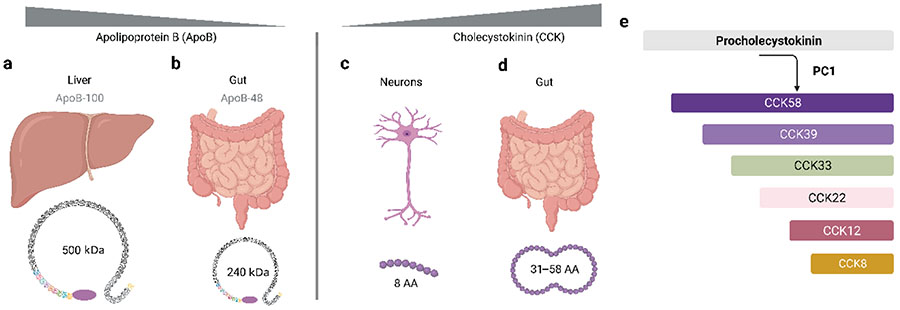Figure 2.
Tissue-specific contrast of size and structure. Evolutionary processes build proteins and synthesize peptides with specific characteristic features fine-tuned to make them bioactive, versatile, and dynamically regulated. (a and b) Splicing of apolipoprotein generates two specific proteins, ApoB-100 of 500 kDa in the liver (a) and ApoB-48 of 240 kDa in the intestine (b). (c and d) CCK, a proteolytically processed peptide hormone composed of 8 amino acids, acts as a neurotransmitter in the brain (c). In contrast, in the gastrointestinal tract, the size of CCK varies from 31–58 amino acids and it functions as a digestive peptide hormone (d). (e) The enzyme prohormone convertase 1 (PC1) serially cleaves the prohormone, procholecystokinin (proCCK), into peptides of different size.

